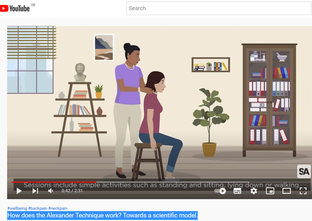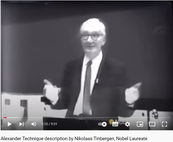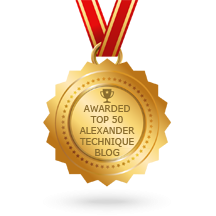
- Its status as one of the world's greatest conservatoires
- Its beautiful building in the shadow of the Royal Albert Hall
- Its museum of musical treasures
- Its longstanding recognition of the value of the Alexander Technique to budding musicians (with several AT teachers on the staff)
Sounds good!











 RSS Feed
RSS Feed
